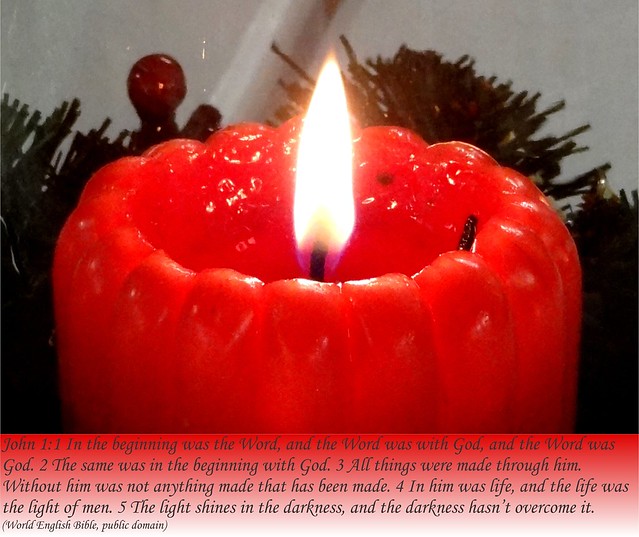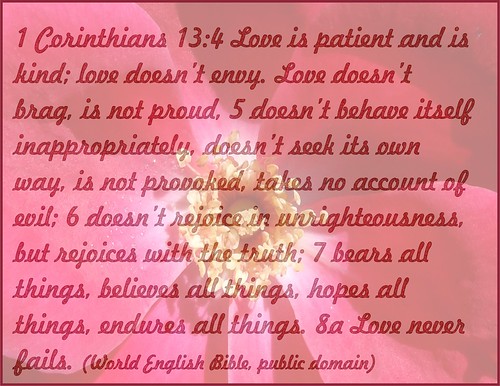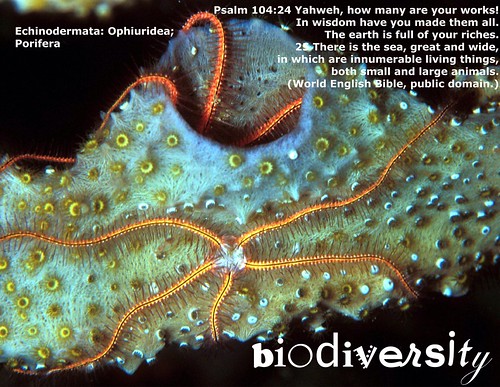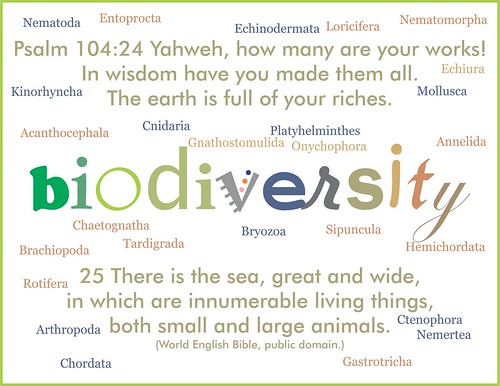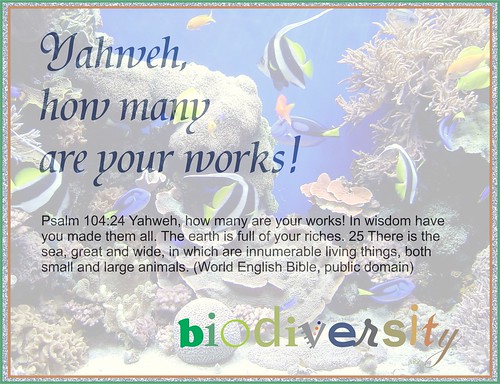I am a Facebook member, and, as such, decided to post about something I'm grateful for, each day. Here is the result, or most of it:
4. I'm thankful for Silicon atoms. They have an amazing ability to hook up with other atoms to form large entities. Without Silicon atoms, and the things they combine with, glass, most rocks, and the semiconductors needed in modern electronics would not be possible.
5. I'm thankful for the tilt of the earth's axis, that makes seasons possible.
7. I'm thankful that I exist. I guess my dad produced a billion or more sperm over his lifetime, and my mother was carrying at least a few hundred eggs when she reached reproductive age, and, presumably, if that one egg and that one sperm hadn't gotten together, I wouldn't be here.
8. I'm thankful to live in a country with a (mostly) functioning democracy. When elections are lost in some countries, the losers get out the guns, or riot. Sometimes the army steps in to remove those in power. These things have never happened here.
9. I'm thankful for a praying wife, and a God who answers her prayers. (Not always with "yes," of course!)
10. I'm thankful that air molecules (and other gases, liquids, and even solids) can be compressed, so that there can be pressure differences, propagated from a source of vibration. In other words, I'm grateful for sound, whether it be the crash of something falling on the floor, or the angels singing to the shepherds. I'm also grateful that I can hear it.
11. I'm thankful for electromagnetic radiation. (This includes light, X-rays, radio waves, and a lot of other forms of energy.) Without it, I couldn't see this screen. Without it, my laptop wouldn't be connected to the Internet right now. Without it, the earth would be a lifeless frozen ball.
12. I'm thankful for my skeleton. Without it, I'd be a blob of meat on the ground, without easy means of movement, of my whole body or my arms -- rather like a jelly fish out of water. My skeleton also protects my brain and my eyes. It makes a good place to attach my muscles. It has marrow which makes some kinds of blood cells.
13. I'm grateful for plant pigments. Most higher plants have chlorophyll, which is a green pigment. Many of them have other pigments that are exposed when the chlorophyll breaks down. The result is beauty, on a magnificent scale.
14. I’m thankful for the phenomena described by the famous equation Einstein developed, e=mc2. It tells us that mass can be changed into energy, lots of energy. This energy, released by nuclear fusion in the sun, is (very slowly) reducing the mass of the sun, and provides the energy that plants turn into food, and that keeps the earth warm enough for life.
15. I’m thankful for lawnmowers and kitchen sinks. When I taught, I was seldom sure if I had really accomplished anything. When I wash some dishes, or mow some grass, or do other routine chores, like washing clothes, mopping, and the like, it’s easy to get a feeling of accomplishment. (The yard IS mowed now. The socks ARE matched and put away. The flowers ARE watered.) I’m also thankful for such routine tasks, which allow me to pay some attention to something else, without danger of messing up the job at hand.
16. I’m thankful for circles. Circles are beautiful curves. In nature, they are produced when some phenomenon is propagated in all directions at the same rate. For example, if a pebble is dropped into still water, the result is circular ripples. Trees generally grow at an equal rate, adding tissue outward from a center in all directions. When a tree is cut cross-wise, the result is a circle. (Actually, it’s often lots of circles, as growth rings are exposed.) Some flowers have a circular shape. Sound travels outward as an expanding sphere, so that, at any one level, sound waves from a point source are circular. The moon and the sun are almost perfectly spherical, and they appear as almost perfect circles. The pupils of my eyes are circular. Many human-made objects are circular, or have a circular cross-section. Where I grew up, pies were circular in shape. Coins are circular. Ice cream cones and eggs have a circular cross-section. I like circles.
17. I'm thankful for sensory neurons. They tell me, for example, what this looks like on the page, how the keyboard sounds, and where my fingers are, so that I can type this.
We often hear that there are five senses. There are more than twice that many in humans, depending on how they are counted. The sense of touch is actually more than one sense -- we sense pressure, pain, and both heat and cold. Both the senses of smell and taste depend on more than one type of sensory neuron. There are sensory neurons in the brain, monitoring the state of the blood, hence our body's states. There is a sense of balance. There are kinesthetic sense neurons that tell us where various parts of our body are located, so, for example, we can (almost) put the tips of our index fingers together in front of our face, with our eyes closed. And then there are senses found in some animals, that we don't have, such as being able to detect heat at a distance. We are fearfully and wonderfully made.
18. I’m thankful for decomposers. Mostly, they are pretty yucky organisms – fungi, bacteria, maggots, and perhaps even vultures should be included. But they carry out a necessary job, which is breaking down once-living things, or cast-off parts of living things, making the minerals and organic substances in the remains available for other organisms. If they didn’t, much of the material needed for life would be lying around in the form of dead leaves, grasses, dead animals, poop and the like, piling up over time, except when a fire burned the stuff. It is possible to circumvent some decomposition by embalming – think of mummies. But what’s the point? What’s left is not really human, but just the carcass of what used to be one.
I’ve already been decomposed a lot. My skin cells flake off, for example. Perhaps you have some atoms in you that used to be in me, and perhaps I have some that used to be in you.
19 I’m thankful for J. R. R. Tolkien and C. S. Lewis. I worked in the library when I was in college, and had access to the stacks. I looked around quite a bit, and found
The Fellowship of the Ring, which had recently been published. Although the Christianity in
Fellowship and related books is not obvious, Tolkien’s enormously popular books were written from a Christian world-view, and, largely, re-shaped the writing of fantastic literature. I have read seven of his books several times, and some others once. Tolkien strongly influenced C. S. Lewis, to become a Christian, and for years after that. Lewis became a leading author of apologetics, as well as of science fiction and fantasy works, which were, and still are, well received. I first found
The Lion, The Witch, And The Wardrobe while messing around in the University of Wisconsin library, which was my introduction to Lewis. It had nothing to do with my graduate program, but Lewis has had quite a bit to do with my life. As Puddleglum says in
The Silver Chair, “There are no accidents.” As to the Christianity in their fiction, Lewis, and especially Tolkien, were writing the books they need to write, and their Christianity showed through.
20. I’m thankful for sugars. Sugars are not only tasty, but essential. Photosynthesis, the process by which atmospheric Carbon (in Carbon Dioxide) is inserted into living things, produces sugar as an end product. Plants use this sugar to make food molecules, and for structure. Some of the sugar produced by photosynthesis is used to make amino acids, the building blocks of protein. Some is used to make fats. Some is used to make carbohydrates, such as cellulose, a molecule used to enable plant structures to grow to great sizes, or to assume beautiful shapes like leaves and flowers. We, of course, get protein, carbohydrates and fats from plants, or from animals that eat plants, and we use cellulose in the manufacture of paper and of some kinds of cloth. Cellulose is also an important part of wood.
If you are hospitalized and need food energy, you are given glucose solution intravenously. Glucose is a sugar. Table sugar, derived from sugar beets or sugar cane, is a combination of glucose and another kind of sugar. There are many kinds of sugar. One of the most important is deoxyribose, which is one of the building blocks of DNA.
I know that sugar on my teeth allows tooth decay bacteria to grow, and too much sugar in my diet may help me to gain weight, or perhaps to behave abnormally, but, overall, sugars are of enormous positive importance. In Bible times, honey was a major source of sugar, apparently. Sugar beets and sugar cane were not available to the people of the Bible.
21. I’m thankful for music. It seems clear that God invented it. Although it may not be meant to be taken strictly literally, Job 38 is a lecture to Job, on the creation of the earth, and it says that the morning stars sang together then. The angels also sang at the birth of Christ. The disciples sung a hymn when they left for the Mount of Olives, where Christ would be arrested during Passion Week. Revelation (again, perhaps not to be taken literally) suggests that there will be a vast choir in heaven, perhaps singing forever, perhaps singing to mark special occasions, such as the triumph of Christ. The Bible, thus, associates the four most important events that took place in the past, or will take place in the future with music. Music is not just for these epic events. The Psalms have a number of admonitions to sing to God. 1 Corinthians 14:15 and Ephesians 5:19 do, too.
22. I’m thankful for that amazing substance, water. Water is one of the raw materials used in photosynthesis, the manufacture of food. Water is beautiful, whether in lakes, ponds, rivers, oceans, clouds, snow, dewdrops or rainbows. Water is unusual in several ways. It exists as a solid, liquid, and gas at temperatures commonly experienced. This makes the water cycle possible. It requires an unusual amount of energy to change it from one state to another, which helps to stabilize air temperature, keeps iced drinks cool, and also means that our bodies don’t succumb to exposure to cold temperatures quickly. It is transparent, which allows us to see (our eyes have fluid in them.) It dissolves many other substances, including hormones, food, waste products, neurotransmitters, enzymes and antibodies. I’m mostly water, and so are you, and all other living things.
23. I’m thankful for memory. I can remember a lot of things, some beautiful, some exciting, some inspiring, some pleasant, some rather ordinary – maybe those are the best kind. There are also, of course, some memories of failure, or tragedy. Our memories change with time, so that I’m probably not remembering a lot of stuff the way it really happened, but remembering is still important. Without quite a bit of memory, I wouldn’t be the person I am – just consider someone with Alzheimer’s, or some other form of dementia. However, I’m also thankful for forgetting. I’ve forgotten a lot of bad stuff, as well as some ordinary stuff. (I’ve also forgotten some good stuff, but, on balance, we’re probably better off to forget.) Most important, God says that He has forgotten forgiven sin!
25. I’m thankful for the Bible, the most important way God has chosen to communicate with 21st century people. It’s a great book, written so that it spoke to the culture of ancient Israel, and it still speaks to me, although through imperfect instruments, including my own prejudices, my own culture, translators who may not have gotten it all quite right, and language itself, which is inherently ambiguous. Do I understand all of the Bible? Definitely not, but I understand enough of it. In one sentence, it tells me that I have a sin problem, and that there is a sinless remedy for it, which I need, and can’t provide for myself.
26. I’m thankful for the medicine and medical care available to me. I recognize that there are many millions of people in this country who don’t have health insurance, and I know of at least two people who have died because they didn’t have it – they didn’t go for treatment until it was too late – but I have and can get, medical care. God can, and does heal, but He also chooses to work through rest, exercise, good food, medicines, therapy, surgery, and through conscientious people who provide such services, and I’m grateful for this. Healthcare isn’t the most important thing in the world, although sometimes we act like it is, but it is important, and I’m glad to get it.
27. I’m thankful for emptiness. This sentence would be difficult to understand without spaces. Thissentencewouldbedifficulttounderstandwithoutspaces. Music needs rests, speakers should pause once in a while, printed documents and books use white space, and the sky is more beautiful with gaps between the stars than if it were solid uniform light. Our lives should have gaps, when nothing is scheduled, so we can renew ourselves, or so that God can use us to do something that wasn’t on “our” schedule.
Some people say that we have a “God-shaped hole” in our souls that we try to fill, unfortunately often with pleasure, power, sex, drugs, and other inappropriate things. Jesus said that a person who had had an evil spirit expelled was in danger of having that hole filled again, with even worse spirits. I’m thankful for emptiness.
29. My underwear says that it’s made of 100% cotton. Both parts of my underwear. That’s all I’m going to say about my wardrobe. However, I’m thankful for fibers, including cotton. Why? To shamelessly quote the Wikipedia: “They are very important in the biology of both plants and animals, for holding tissues together.
Human uses for fibers are diverse. They can be spun into filaments, string, or rope, used as a component of composite materials, or matted into sheets to make products such as paper or felt. Fibers are often used in the manufacture of other materials. The strongest engineering materials are generally made as fibers, for example carbon fiber and Ultra-high-molecular-weight polyethylene.
Synthetic fibers can often be produced very cheaply and in large amounts compared to natural fibers, but for clothing natural fibers can give some benefits, such as comfort, over their synthetic counterparts.”
So. Imagine a world without fiber. No paper, not much clothing, string, rope, fabric in autos, or trees, and, besides, we and other animals would pretty much become a blob of glup.
Fiber is also used in a moral sense, as in “moral fiber,” or “the fiber of my being.” I hope that, in the fiber of my being, I want to follow Christ. Thanks for reading. Perhaps your information equipment uses optical fibers, so you could. I know that your own information processing system uses nerve fibers.
My wife reminded me that I should have mentioned that fiber in the diet helps prevent colon cancer. She’s right.
30. I’m thankful for the blood of Christ. As 1 Peter puts it: “18 knowing that you were redeemed, not with corruptible things, with silver or gold, from the useless way of life handed down from your fathers, 19 but with precious blood, as of a faultless and pure lamb, the blood of Christ;” (World English Bible, public domain) The only way to redemption from sin’s penalty, death, is trust in the power of the sacrifice of Christ, which sacrifice was validated by His resurrection. Why blood? We don’t know for sure, of course, but blood is symbolic of life. Many crime dramas, on TV and the movies, show blood. Lots of it. Fake blood. But we understand that if we lose too much real blood, we’ll die. We also understand that if the heart, which pumps blood all over the body, stops, we’ll die.
Why is blood so essential to biological life? It carries food and Oxygen all over the body. It carries off Carbon Dioxide and other wastes. It transports the hormonal signals that tell the body to do so many different things. It carries white blood cells and antibodies, which fight off invasions. It helps regulate temperature. It connects an unborn embryo or fetus with its mother. Blood does this, and many more things. How appropriate that it was taken, by the ancient Hebrews, as a symbol of life.
You probably noticed that, for some reason, the entries kept getting longer.



